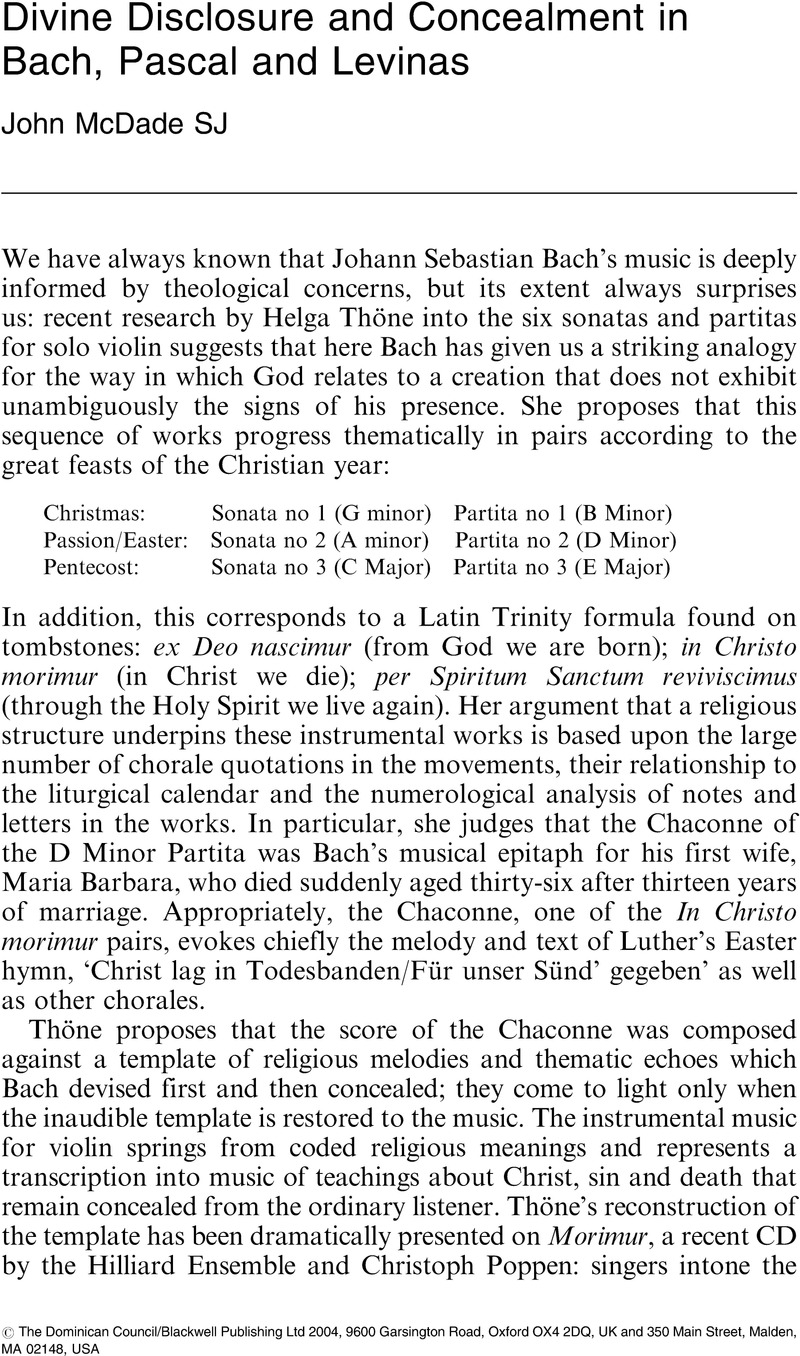Article contents
Divine Disclosure and Concealment in Bach, Pascal and Levinas
Published online by Cambridge University Press: 01 January 2024
Abstract

- Type
- Catholic Theological Association 2003 Conference Papers
- Information
- Copyright
- Copyright © The Dominican Council/Blackwell Publishing Ltd 2004
References
1 Morimur, ECM New Series 1765 461 895–2. The accompanying booklet introduces Thöne's theories outlined here.
2 ‘La vie de Pascal’ in Blaise Pascal, Oeuvres Complètes, ed. J. Mesnard, Desclée de Brouwer, 1964-, I, 584. In subsequent references: OC. References to the Pensées are to the Sellier edition (S), Classiques Garnier, 1991 and to the Lafuma edition (L), L’Intégrale/Seuil, 1963.
3 OC, III, 967.
4 OC, III, 1037–8.
5 Gouhier, op. cit. p. 188f.
6 Henri Gouhier speaks of Pascal's sense of ‘an essential ambiguity in created existence resulting from the very finality which gives meaning to creation. Thus it [the ambiguity] is everywhere: in nature, Scripture, history’ Gouhier, op. cit., 196.
7 Constitutions du monastère de Port-Royal du Saint-Sacrement, Mons 1665, 350Google Scholar; quoted in Sellier, P., ‘Jésus-Christ chez Pascal’, Rev. Sc. ph. th. 66 (1982), 505–21Google Scholar, 516. CF., Sellier, P., Pascal et la liturgie, P.U.F., 1966, 13–15, 68–70Google Scholar.
8 Gouhier, H., Blaise Pascal: Commentaires, Vrin, 1984, 220ffGoogle Scholar.
9 The phrase is Sellier’s; art. cit., 518.
10 CF., H. Michon, ‘Deus Absconditus’, XVIIe siècle, 1992, pp. 495–506; p. 498. Quotation from P. Sellier, ‘Jésus-Christ chez Pascal’, p. 519.
11 The story, Levinas’ article and van Beeck's response are given in Beeck's, F.J. van Loving the Torah More than God: Towards a Catholic Appreciation of Judaism, Loyola University Press, 1989Google Scholar.
12 Op. cit., 38
13 ‘The severe God who makes demands on a humanity capable of [doing] good is covered up by an infinitely indulgent deity who locks humans up in their wickedness and who delivers up to those humans, wicked yet saved, a defenceless humanity.’ Levinas in Difficult Freedom, quoted in van Beeck, 47
14 Op. cit., 47
- 4
- Cited by


